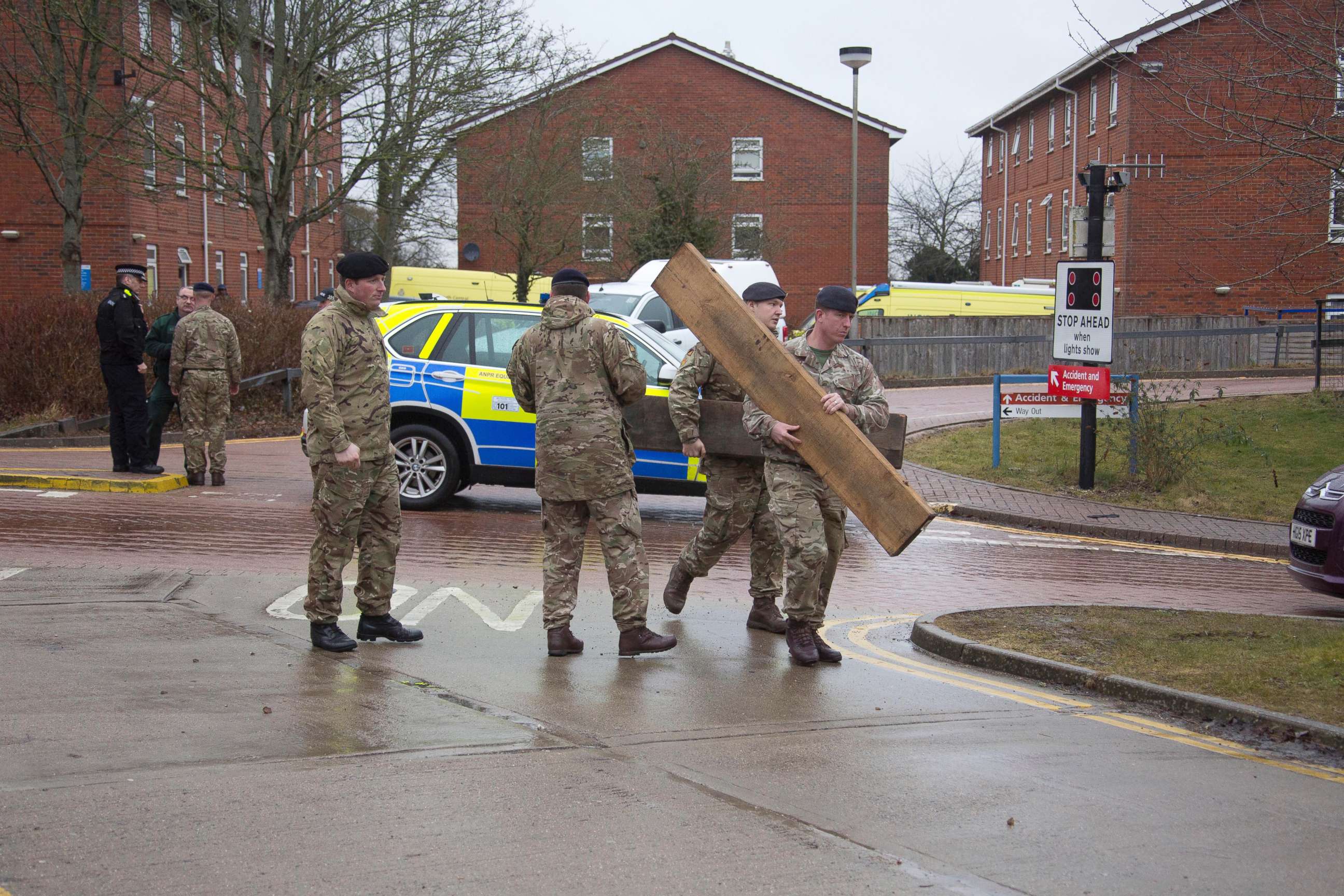Russia 'not to blame' for former spy's poisoning, foreign minister says
Russian officials have mocked a U.K. ultimatum to explain nerve agent attack.
MOSCOW -- Moscow "is not to blame" for the poisoning of a former Russian double agent in southern England last week, Foreign Minister Sergey Lavrov said today, though offering assistance in the investigation only if British authorities provide a sample of the nerve agent used in the attack.
Lavrov’s denial came in response to British Prime Minister Theresa May’s Monday comments that Russia was "highly likely" responsible for the chemical attack that left former spy Sergey Skripal and his daughter Yulia in critical condition while exposing at least 20 other people to the nerve agent in the sleepy English town of Salisbury.
May has given Russia until midnight Wednesday to provide a "credible" explanation for how what she called a Russian military-grade nerve agent came to be used in Skripal's poisoning, or face retaliation from Britain.
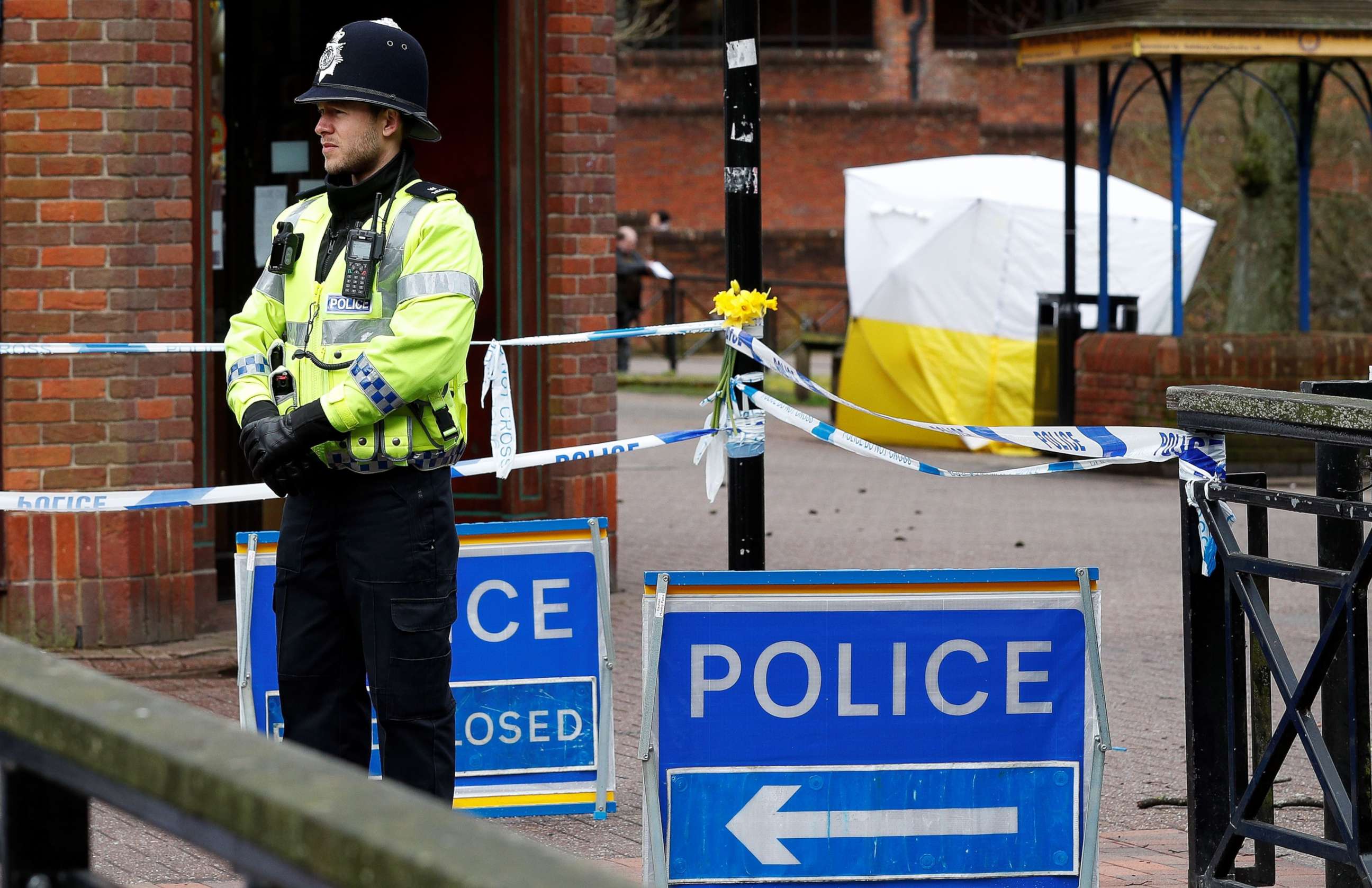
Lavrov, at a news conference today, said Russia is ready to assist in investigating the attack, but added that London would be "better off" complying with its international obligations "before putting forward ultimatums."
There has been little sign Russia is preparing to acquiesce to the British demands for an explanation. The Russian response so far been mostly bombastic denials and claims of a setup.
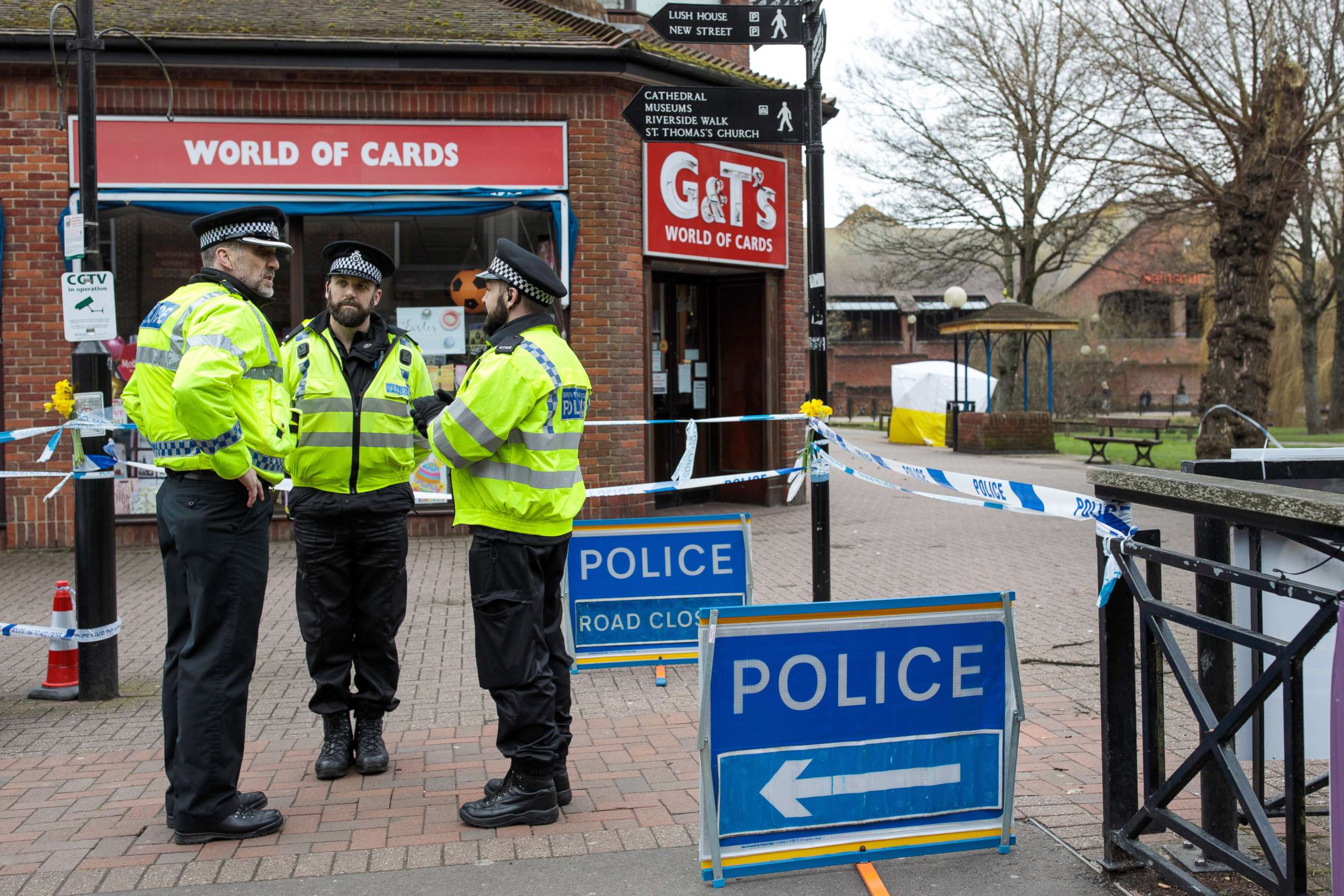
Russia’s foreign ministry today also mocked May's accusations and suggested they were an invention to smear Moscow.
“What PR man could come up with such a thing? Only someone at the level of Theresa May!” Maria Zakharova, a foreign ministry spokeswoman, wrote on her Facebook page.
The ministry’s official Twitter account posted a sarcastic message making “sincere thanks to Mrs. May for #HighlyLikelyRussia” accompanied by a video blaming Russia for the severe snowstorms that have caused gridlock the U.K. in the past month.
May told Parliament that investigators have identified the nerve agent used in the attack as of a variety known as a “Novichok,” a new generation of secret nerve poisons the Russia state is known to have developed. Britain has now demanded that Russia disclose the Novichok program to inspectors from the Organization for the Prohibition of Chemical Weapons (OPCW).
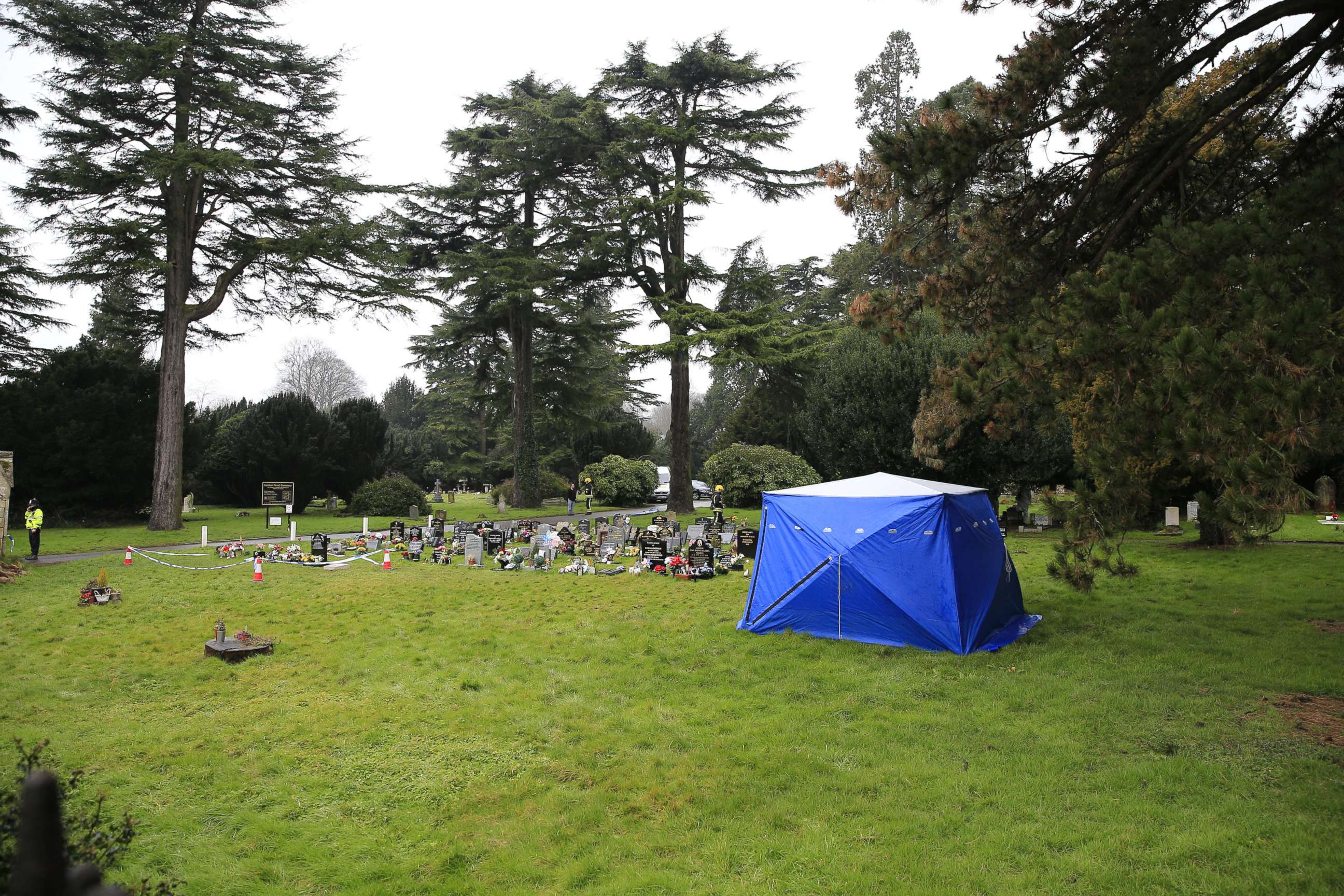
But a Russian senator today denied that Russia had any nerve agent stocks, saying they had been destroyed along with Russia’s entire chemical weapons arsenal. Igor Morozov, the senator, told state-operated RIA Novosti, “Russia not only halted the output of nerve-paralyzing gases, including ‘Novichok,’ but completely destroyed all its stocks of them.”
Russian President Vladimir Putin said in September that the country had completed the total dismantlement of its chemical weapons stocks. Russia has never acknowledged the existence of its Novichok program, even after Russian whistleblowers revealed it in the 1990s.
U.S. Secretary of State Rex Tillerson Monday echoed the British assessment that although he didn’t know yet whether the Russian government knew in advance of the attack, there was no question the nerve agent "came from Russia."
“It is only in the hands of a very, very limited number of parties,” Tillerson told reporters, warning that the poisoning would “certainly trigger a response.”
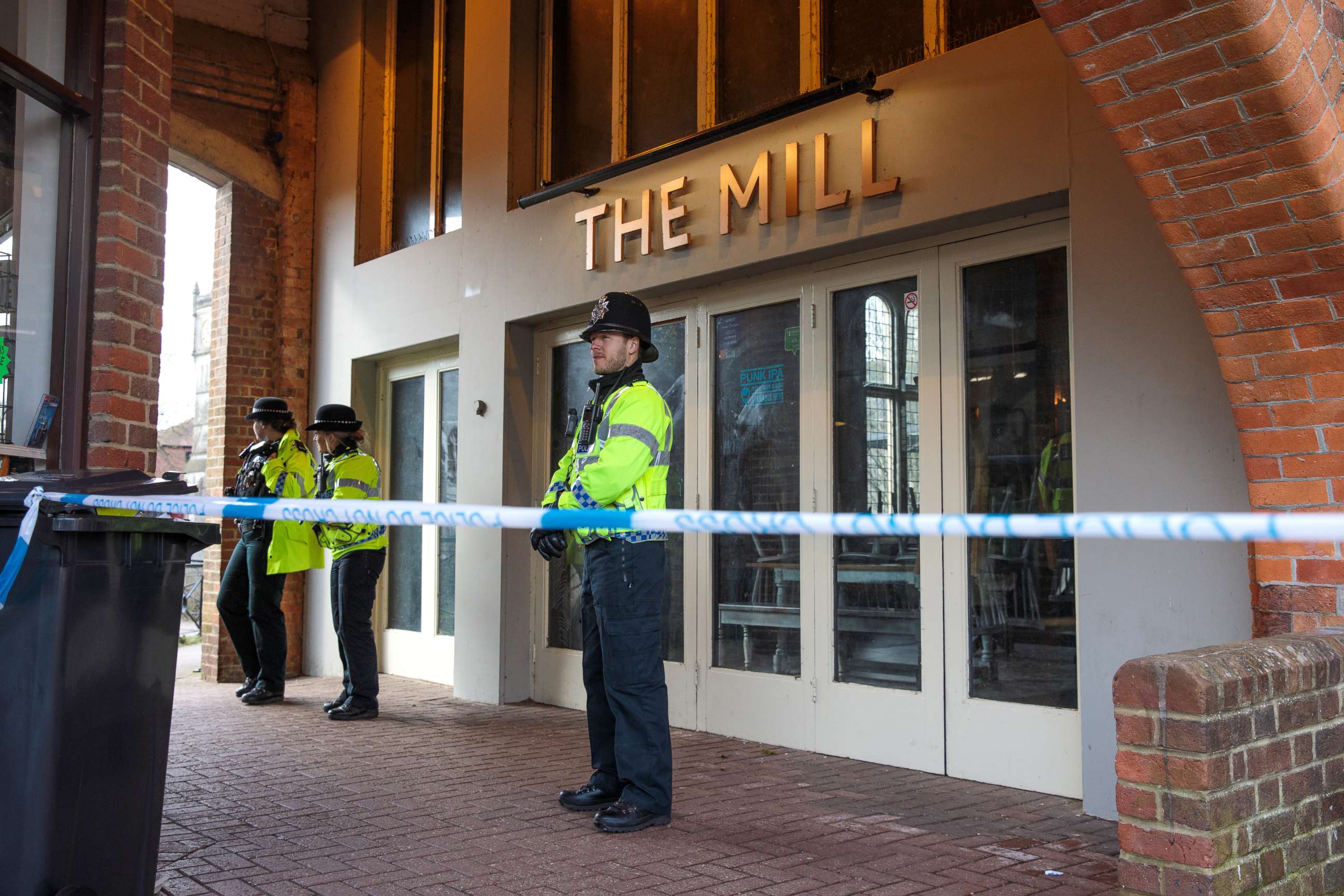
Russia’s embassy in the United States attacked Tillerson’s comments as “fake news” in a statement to Russian news agency Interfax, accusing the U.K. and the Unite States of failing to provide any evidence.
Russian officials and commentators in state media have repeated an argument that killing Skripal’s would be of no benefit to Russia, noting that he had been pardoned when he was exchanged in a swap for Russian spies in 2010.
An officer in Russia's military intelligence service, Skripal sold information to Britain's MI6 spying agency in the late 1990s before he was arrested and convicted of high treason. Russian officials have said the new claims are part of an anti-Russian campaign that included the investigation into Russian election meddling in the United States.
“The same algorithm is being applied as in ‘Russia Gate’ in the U.S.,” Konstantin Kosachev, the head of Russia’s foreign affairs committee, whose comments often herald the Kremlin line, wrote in a Facebook post.
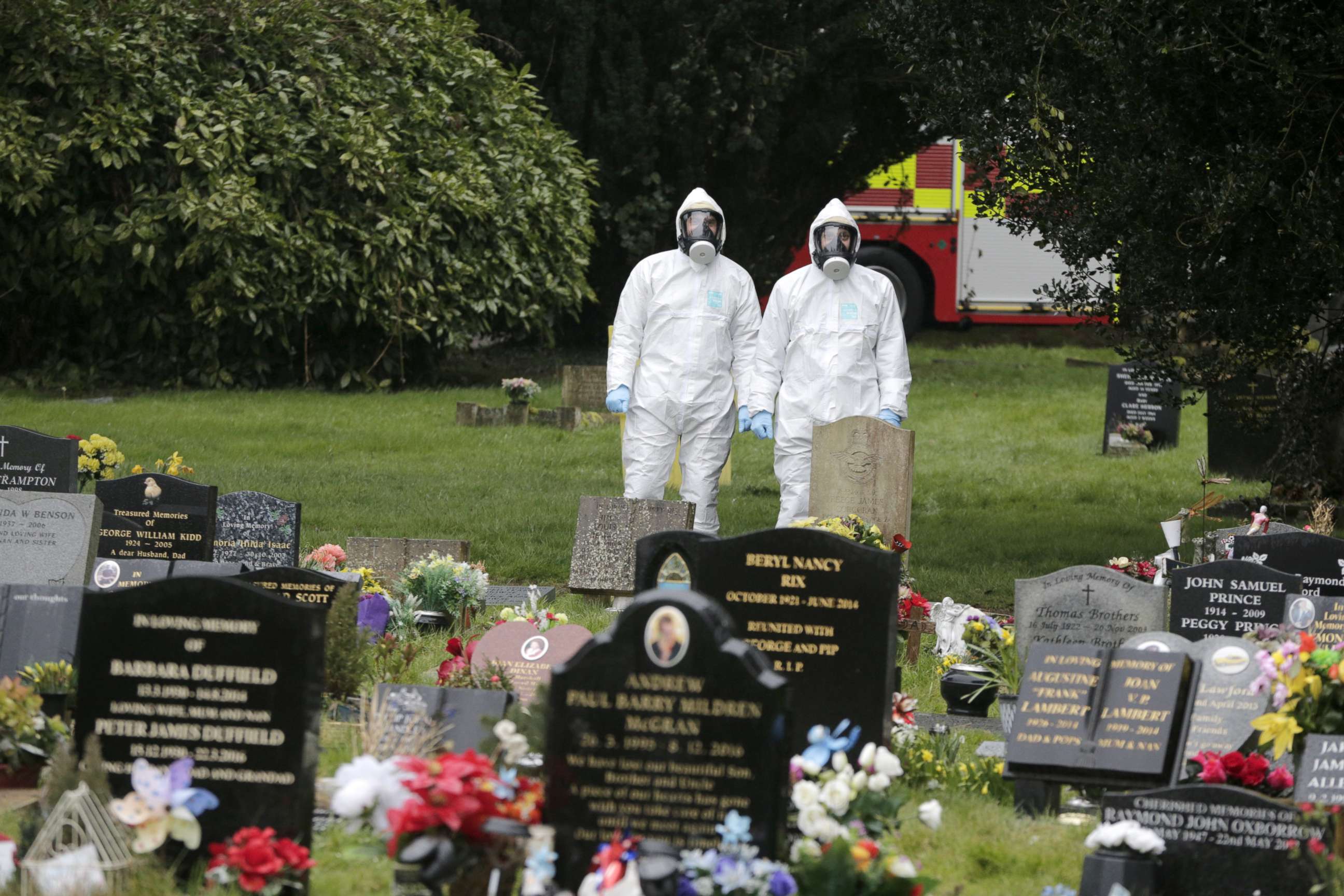
“A total presumption of guilt,” he wrote, where the accused is “not granted access to either the evidence or the process.” The West was turning to a “Stalinist” form of justice, he wrote.
Russian state television has suggested the poisoning, which led authorities to tell hundreds to wash their clothes as a precaution, could have been staged by British intelligence. Last week, an anchor on a main evening news broadcast also appeared to issue a warning to traitors.
Russia 24, a state news channel, invited a man alleged to have taken part in the previous major poisoning in the U.K. to participate in a panel show. Alexander Lugovoi, who, in a decade-long British inquiry, was alleged to have had killed dissident FSB officer Alexander Litvinenko with radioactive poison in 2006, told Interfax that May’s statements were “irresponsible.”
Lugovoi, who was made an MP in Russia's parliament after he was accused of the killing, said Britain was following the same "template" in the Skripal case. Russian authorities blocked British requests to help investigate Litvinenko's killing and to question Lugovoi, and the British inquiry concluded Putin had "probably" personally ordered the killing.
May said in her statement Monday that it Russia does not respond to the allegations by midnight Wednesday, Britain will treat the chemical attack as an “unlawful use of force” warranting retaliation. That could involve diplomatic expulsions, fresh sanctions and visa restrictions on wealthy Russians deemed close to the Kremlin, as well as potentially calling for increased NATO troop numbers in Eastern Europe.
